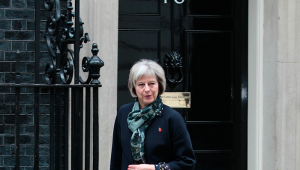General elections used to be about big political issues: war, poverty, welfare, that kind of thing.
This one is different. The outcome of the contest on May 6 will be settled by the sort of questions that normally only agitate readers of Public Finance, but have now moved decisively centre stage.
The precise percentage of National Insurance contributions or VAT rises planned by each party; their impact or otherwise on business; the exact level of efficiency savings required to pay down the deficit – these and other arcane issues are sending the pundits into paroxysms of excitement, and the polls all over the place.
How did we get here? When did the interests of Gordon Brown’s ‘ordinary middle classes’ – or David Cameron’s ‘great ignored’ – get narrowed down to pocketbook politics and micromanaging the public finances?
PF’s expert round table on the banking crisis (see cover feature) provided some useful clues.
Speaker after speaker reminded us that the near-collapse of the global financial system – and subsequent state bail-out of ‘the people’s banks’ – had reached into the lives of every household in the UK. The vast cost of the credit crunch in terms of lost tax revenues to the Exchequer, and projected spending cuts, will affect public services for decades to come.
As Professor John Kay told the round table, no mechanism has yet been put in place to ensure that a crash doesn’t happen again.
Is it any wonder that voters are nervous, and politically undecided? More than ever before, it’s the economy, stupid.
But there are risks associated with just focusing myopically on tax and spend.
Bigger issues need to be addressed – the role of the markets, the size and regulation of the Square Mile and the measures necessary for economic recovery.
All the major parties have a take on these topics; some – to borrow the phrase coined by Financial Services Authority chair Adair Turner – more ‘socially useful’ than others.
Everyone with an interest in preserving the fabric of public services needs to scrutinise the evidence, question the politicians and make a judgement on how best to minimise the damage to the front line
These are big picture questions, and ones that we fail to ask at our peril. After all, if not during this election, when?
Judy Hirst is the deputy editor of Public Finance











